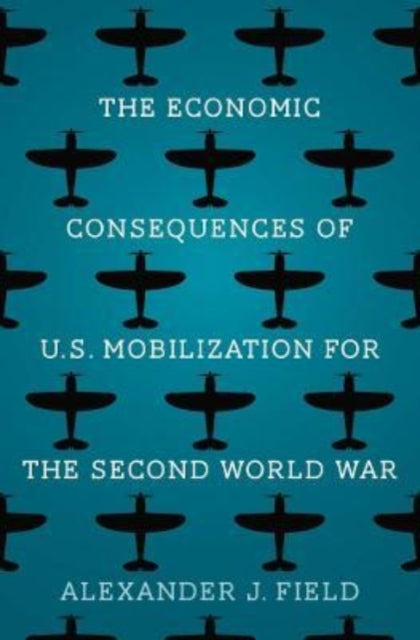Alexander J. Field
The Economic Consequences of U.S. Mobilization for the Second World War
The Economic Consequences of U.S. Mobilization for the Second World War
- Condition: Brand new
- UK Delivery times: Usually arrives within 2 - 3 working days
- UK Shipping: Fee starts at £2.39. Subject to product weight & dimension
Bulk ordering. Want 15 or more copies? Get a personalised quote and bigger discounts. Learn more about bulk orders.
Couldn't load pickup availability
- More about The Economic Consequences of U.S. Mobilization for the Second World War
War is not always good for long-term growth, as manufacturing productivity declined between 1941 and 1945 due to changes in the output mix and resource shocks from enemy action. The war forced a shift away from producing goods in which the country had a great deal of experience toward those in which it had little, and learning by doing was only a partial counterbalance to the intermittent idleness and input hoarding that characterized a shortage economy. The conflict distorted human and physical capital accumulation, and once it ended, America stopped producing most of the new goods. U.S. world economic dominance in 1948 was due less to the experience of making war goods and more to the country's productive potential in 1941.
Format: Hardback
Length: 472 pages
Publication date: 22 November 2022
Publisher: Yale University Press
Many people hold the view that, despite its destructive nature, war can ultimately promote long-term economic growth. This perspective is often supported in the case of the United States, with the Second World War being cited as a triumph of production and productivity. However, Alexander Field's research reveals that manufacturing productivity actually declined between 1941 and 1945, primarily due to changes in the output mix and resource shocks caused by enemy action, such as limited access to natural rubber and petroleum on the Eastern Seaboard. The war necessitated a shift towards producing goods in which the country had limited experience, rather than relying on its extensive expertise.
While learning by doing was a partial counterbalance to the intermittent idleness and input hoarding that characterized a shortage economy, it was not enough to boost productivity. The conflict distorted the accumulation of human and physical capital, and after the war ended, the United States ceased producing most of the new goods. The war also temporarily halted basic scientific research and the ongoing development of civilian goods.
It is important to note that U.S. world economic dominance in 1948 was not solely attributed to the experience of making war goods. Rather, it was more influenced by the country's productive potential in 1941. This highlights the complex interplay between war, economic growth, and technological advancements.
Weight: 814g
Dimension: 165 x 242 x 33 (mm)
ISBN-13: 9780300251029
This item can be found in:
UK and International shipping information
UK and International shipping information
UK Delivery and returns information:
- Delivery within 2 - 3 days when ordering in the UK.
- Shipping fee for UK customers from £2.39. Fully tracked shipping service available.
- Returns policy: Return within 30 days of receipt for full refund.
International deliveries:
Shulph Ink now ships to Australia, Belgium, Canada, France, Germany, Ireland, Italy, India, Luxembourg Saudi Arabia, Singapore, Spain, Netherlands, New Zealand, United Arab Emirates, United States of America.
- Delivery times: within 5 - 10 days for international orders.
- Shipping fee: charges vary for overseas orders. Only tracked services are available for most international orders. Some countries have untracked shipping options.
- Customs charges: If ordering to addresses outside the United Kingdom, you may or may not incur additional customs and duties fees during local delivery.


